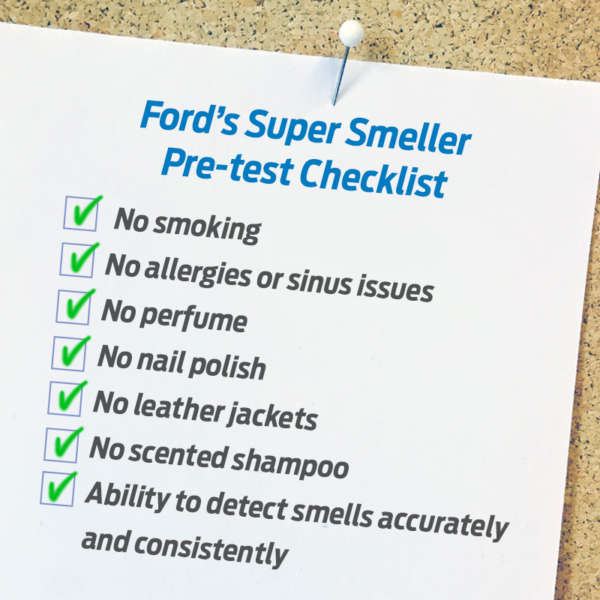Smell is the most sensitive and powerful of the five senses, and the one most tied to memory and emotion. It affects 75 percent of our daily emotions and can influence mood, well-being and pleasure. Smells can create lasting connections between a brand and its customers. The perfume industry has been built around this connection. Fragrances are developed to evoke a range of emotions from desire to vitality and relaxation. And who hasn’t been drawn into a supermarket or café by the smell of baking bread or freshly brewed coffee?
Car designers are increasingly competing to deliver the perfect car scent in each market. For Ford Motor Company, smell is a crucial aspect of delivering high quality vehicles to customers. Since 2008, Ford has been continually expanding its Asia Pacific odor laboratory in Nanjing, China. The team consists of 18 ‘super smellers’, who conduct about 300 odor tests each year on materials and components that go into its Asia Pacific vehicles.
Also Read – 200th Ford Assured Dealership Inaugurated In India
Every year Ford runs an application process to select its team of super smellers in China from across departments within the company and they are asked to judge material samples in 16 jars. Ford’s super smellers must requalify annually to maintain their position on the panel and must be available to attend regular odor tests throughout the year. A small group of six panelists form the smell jury for each test and an average of their scores is given to each material sample.
Scents don’t smell the same to everyone – scientists put it down to genetics – so Ford has odor labs in the U.S., Europe and Asia Pacific to make sure its vehicles appeal to customers all over the world. Everything used in a Ford vehicle – like seat fabric, plastics or carpet – is odor tested. According to Ford’s testing criteria, materials should have an odor that is perceptible, but not disturbing. If anything is deemed too smelly, Ford works with the supplier to remedy the issue or explore other options.
https://youtu.be/n9YnEEXhrJE
To test how a car will smell when it’s mass manufactured, Ford tests material samples using simple domestic tools: glass jars and ovens. It has repurposed ordinary three-liter glass mason jars – normally used to store household items like pasta or dried beans – into mini environmental chambers that can replicate real world conditions.
The material samples are scaled to their relative size in the vehicle and put into the jars, which are heated in an oven to three distinct temperatures: 80, 40, and 23 degrees Celsius. Testers add water to the 40- and 23-degree jars to create a humid environment.

